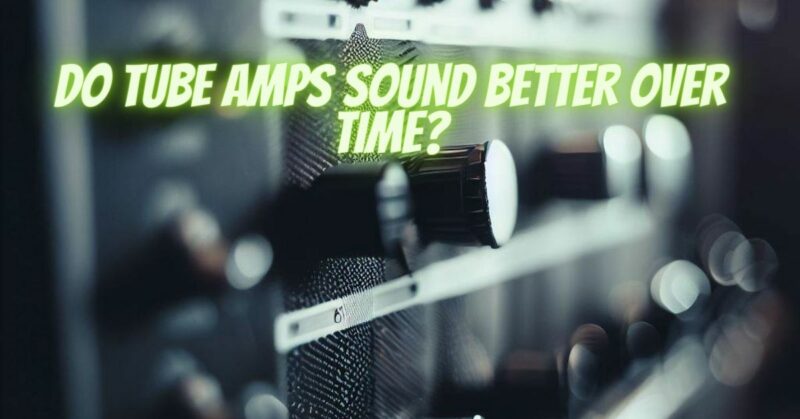Tube amplifiers have long been praised for their unique sound characteristics, warm tones, and rich harmonics. Among audiophiles and musicians, a common belief circulates that tube amps “sound better” over time with extended usage. This belief has led to the notion that “aging” tube amps can improve their sound quality. In this article, we will explore the truth behind this claim and examine whether tube amps indeed sound better over time or if this is simply a myth.
Understanding Tube Amplifiers
Tube amplifiers, also known as valve amplifiers, use vacuum tubes to amplify audio signals. These vacuum tubes consist of an anode, a cathode, and a control grid, which work together to amplify the input signal. Tube amps have been a popular choice among musicians and audiophiles for their warm, vintage sound and their ability to produce natural harmonic distortion.
The Myth of Tube Amps “Aging” and Sounding Better
The idea that tube amps sound better over time is a persistent myth within the audio community. The notion is often based on anecdotal experiences and beliefs, rather than scientific evidence. Let’s examine the reasons behind this myth:
- Bias Confirmation: When individuals hold a preconceived belief, they may interpret any changes in sound as improvements due to confirmation bias. If someone believes that tube amps improve with age, they may perceive subtle changes in sound over time as a validation of this belief.
- Burn-In Period: Some audiophiles suggest that new tubes require a “burn-in” period to reach their optimal performance. During this period, the tubes are said to stabilize, and any initial variations in sound may be attributed to this process.
- Speaker Break-In: In some cases, changes in sound may be related to the speakers rather than the tube amp itself. Speakers may require a break-in period, during which their suspension and diaphragm adapt to produce more accurate sound.
The Reality of Tube Amp Performance
While the myth of tube amps sounding better over time persists, there is no scientific evidence to support this claim. Tube amps, like any well-designed audio equipment, should provide consistent and reliable performance throughout their lifespan. The sound quality of a tube amp is determined by factors such as the design, quality of components, and proper maintenance, rather than an intrinsic “aging” process.
Factors Affecting Tube Amp Sound
The sound quality of a tube amp can be influenced by various factors, including:
- Tube Selection: Different tubes can produce distinct sound characteristics, and choosing the right tubes can tailor the amp’s tone to individual preferences.
- Maintenance: Regular maintenance, including bias adjustments and tube replacements when necessary, can help maintain optimal performance.
- Speaker Matching: The choice and matching of speakers can significantly impact the overall sound quality of the system.
The belief that tube amps sound better over time is a myth lacking scientific evidence. While tube amps are renowned for their unique sound characteristics, any perceived changes in sound quality over time are likely attributed to factors such as tube selection, maintenance, and speaker matching. It is essential to focus on proper equipment selection, regular maintenance, and attentive listening to achieve the best sound quality from a tube amplifier.


